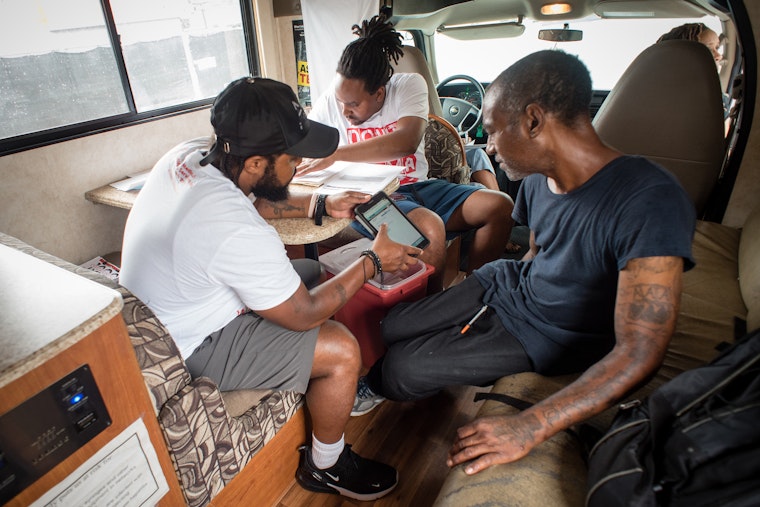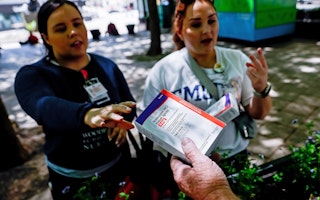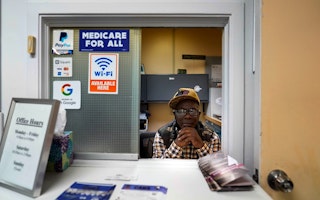Reframing the Blame for the War on Drugs
By Louise Vincent

It was almost dawn. My phone was ringing over and over, but it was the loud banging at the door that woke me up. It was my mother. She had come to tell me that my 19-year-old daughter was dead from a drug overdose.
It was hard to process those words in that moment. My initial despair and grief shifted to rage. I wanted the person who gave my daughter the drugs to pay. It didn’t matter if it was her boyfriend or friends—I wanted to hurt and punish that person.
I had these feelings despite knowing that that person who gave my daughter the heroin that was most likely contaminated with fentanyl—the synthetic opioid that is up to 100 times stronger than morphine—was not responsible for my daughter’s death.
As a person who uses drugs, I know that no one person is to blame. What is responsible for the hundreds of thousands of deaths from drug overdose is a broken drug policy, a system that prioritizes punishment over treatment, and a culture of prohibition that leads us to use drugs alone and in shame.
Indeed, while the nation continues to double down on tough approaches to deal with the overdose crisis, fentanyl will continue to poison the U.S. drug supply, and people will continue to die. More than 70,000 people died of drug overdose in 2017 in the United States—a record. And as law enforcement becomes more intense, the potency of prohibited substances increases.
These punitive approaches and the harm they cause are no more apparent than in drug-induced homicide laws, which make it a crime to give drugs that result in a death. While originally designed to target cartel dealers, they are overwhelmingly used to prosecute friends and loved ones of an individual who has lost their life due to an overdose.
The majority of those impacted by the law also include people selling on a small scale to support their own use. These people often have few options for sustaining a reliable income, because of their criminal records because of the war on drugs. A criminal record shuts door after door; few people can see past it.
Here is what I want you to know: Prohibition will never work. Halting drugs from entering the U.S. won’t happen. Sending users and dealers to prison will not solve the problem. I know this because, as a drug user with friends, family and colleagues who use drugs, I have seen firsthand the outcomes of these efforts and policies: more drug use, more deaths, more shame, and more suffering.
What we should focus our attention and resources on are strategies we know help drug users stay safe: a public health-centered approach, which requires an entirely different set of policies. Naloxone, medication designed to rapidly reverse opioid overdose, access and distribution, Good Samaritan laws, fentanyl test strips, drug-checking stations, treatment on demand and medication-assisted treatment have all been shown to be effective in reducing overdose death among people who use drugs.
Through my work and in my personal life, I encourage people who use and sell to get fentanyl test strips and to carry naloxone—I also teach sellers to educate their clients about overdose risk and harm reduction. The countries that implement these policies, such as Portugal, have seen huge reductions in overdoses and improved health. The underlying principle of these policies is compassion instead of punishment. And they work.
We also need to stop labeling drug users as addicts and junkies and reinforcing that drug use is central to a drug user’s identity. As drug users, our society has taught us that the only way out—that the only acceptable narrative—is that we have to be a recovering addict. We introduce ourselves as addicts, and addiction becomes who we are.
That’s why we started #Reframetheblame: “from people to policy,” a campaign launched by Urban Survivors Union, the national drug user union for which I am acting director.
#Reframetheblame is about understanding that our blame has been misdirected: instead of blaming drug users, we need to look critically at our own policies and push for reform. The campaign gives an opportunity for people who use drugs, both former and active, to work together to advocate for that change.
It’s a place for people to share their feelings and their insights about drug-induced homicide laws with their families, communities, and other drug users. It’s designed to be similar to a do not resuscitate order; we sign a “Do Not Prosecute,” as a way of taking control of our lives. It’s a powerful statement declaring that we don't want our lives used as propaganda to continue a drug war.
And we’re growing. I am working with these drug user unions across the country to build a system of working together that is team based and grounded in feminist principles, where women lead alongside men. This year alone, we grew from four unions to more than 19 in the United States.
The war on drugs is a war on people and their human rights. It’s time out lawmakers acknowledge that and put policies in place that reduce harm and don’t rely on punitive measures. I will keep fighting until that happens. I know that’s what my daughter would want.
The Urban Survivors Union is a grantee of the Open Society Foundations.
Louise Vincent is acting director for the Urban Survivors Union.


